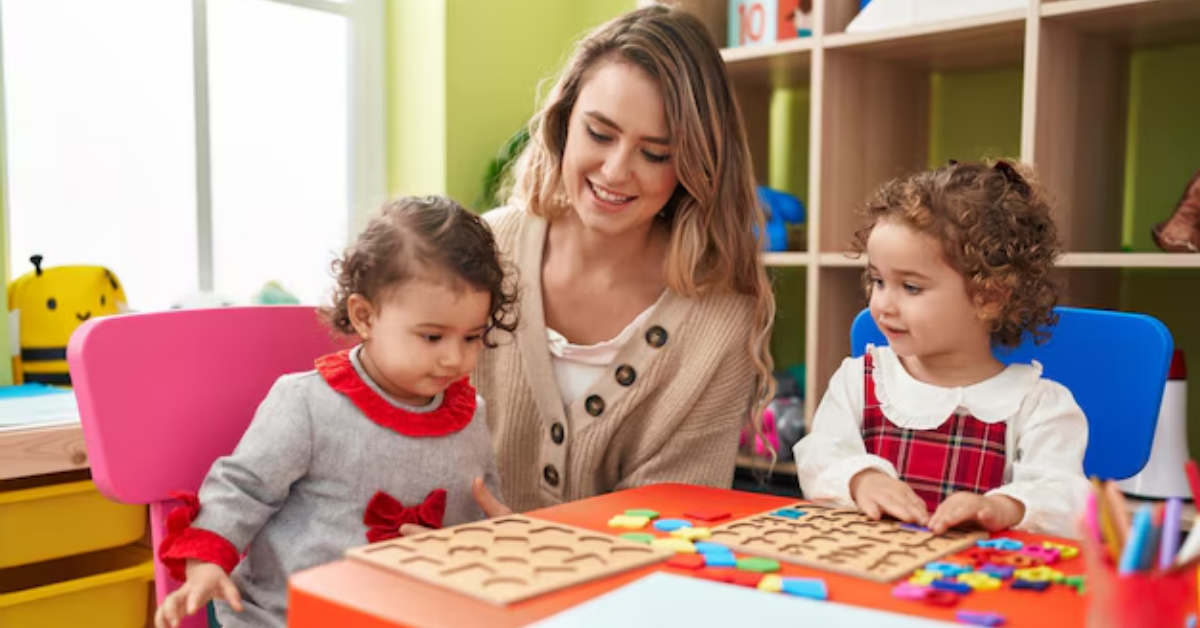The Benefits of Routine and Structure for Young Children

As parents, one of the most powerful tools you have in guiding your child’s development is the implementation of routine and structure. From the moment they are born, children thrive in environments where they feel safe, secure, and know what to expect. Establishing a consistent schedule not only benefits their emotional and physical well-being but also plays a crucial role in their social development, academic readiness, and overall behavior. In this post, we will explore the many advantages of maintaining routines for young children and how it can positively impact their lives.
Emotional Regulation
One of the most significant benefits of having a structured daily routine is the emotional stability it provides to young children. A predictable schedule helps children feel in control of their environment and reduces anxiety by eliminating uncertainty. This sense of security leads to better emotional regulation, as children know when to expect certain activities, such as playtime, mealtime, or bedtime.
For instance, when a child knows that they will always have a snack after school or a bedtime story before going to sleep, they can adjust their emotional responses accordingly. It’s the consistency that provides a sense of comfort, helping them understand what is expected of them and how to manage their emotions throughout the day.
Encouraging Independence
Routines can also foster independence in young children. When they know what to expect throughout the day, they become more confident in completing tasks on their own. Whether it’s brushing their teeth, putting away toys, or dressing themselves, a structured routine allows children to take ownership of their day-to-day activities.
For example, you might incorporate small tasks like putting on their shoes or setting the table into their routine, which not only boosts their independence but also reinforces their sense of accomplishment. Over time, these daily tasks become second nature, and children are empowered to handle more responsibilities.
School Readiness
A structured routine is key to preparing young children for the transition to school. Many of the habits developed through consistent routines—such as adhering to schedules, following instructions, and taking turns—are essential skills needed for a successful school experience. Routines help children understand the concept of time and the importance of following a set plan, both of which are crucial in a classroom setting.
In particular, routines help children learn the importance of transitions. For example, getting ready in the morning, having breakfast, and leaving for school on time are steps that mirror the school environment. Children who are accustomed to such routines are more likely to adjust smoothly to a school schedule, which involves adhering to class timetables, breaks, and structured learning activities.
Enhanced Family Bonding
Having a set routine also strengthens family bonds. When families share consistent time together—whether it’s at mealtimes, during bedtime, or at weekend activities—children develop a stronger connection to their caregivers. Routines allow for quality time to interact, discuss the day, and provide emotional support, all of which contribute to a nurturing and loving family environment.
For example, a consistent bedtime routine might include a bath, reading a favorite book, and cuddling before sleep. These moments of connection create lasting memories and help children feel safe and loved, which is essential for healthy emotional development.
Better Sleep and Health Habits
A structured routine can also have a profound impact on a child’s sleep patterns. Regular bedtimes and wake times help establish a sleep routine, allowing the child’s body to naturally adjust to a consistent rhythm. This leads to improved sleep quality, which, in turn, supports overall health, mood regulation, and cognitive functioning.
Furthermore, routines can promote healthier eating habits by ensuring that meals are scheduled at regular intervals throughout the day. Whether it’s breakfast, lunch, or dinner, a structured routine ensures that children are eating on time, which is important for maintaining energy levels and supporting proper nutrition.
Developing Social Skills
The benefits of routine and structure extend beyond individual growth and can also enhance a child’s ability to interact with others. Consistent routines can help children navigate social situations more comfortably. For instance, if a child knows that there is a designated time for group play or interacting with others, they can better understand the expectations of social settings.
Group activities, like playdates or family outings, can be incorporated into the child’s routine, helping them learn essential social skills such as sharing, taking turns, and cooperating with others. As they grow, children will have the foundational social skills they need to engage with peers and build positive relationships.
Flexibility Within Routine
While consistency is key, it’s also important to allow room for flexibility. Routines should be structured enough to provide stability but adaptable to life’s unpredictability. Children can learn how to handle changes within the routine, such as a special outing or a day off from school, without feeling stressed or anxious. Teaching them that it’s okay to deviate from the routine when needed helps them build resilience and adaptability.
Tips for Establishing a Routine
If you’re looking to establish or improve your child’s routine, here are some tips to get started:
- Start Small: If your child is not used to a structured schedule, begin by incorporating a few simple routines, such as a consistent bedtime or mealtime. Gradually expand the routine as they adjust.
- Involve Your Child: Engage your child in creating their routine. This could mean letting them pick out their clothes in the morning or deciding on activities after school. Involving them helps create a sense of ownership.
- Consistency is Key: Try to keep routines as consistent as possible. Regularity helps children feel secure and understand what to expect.
- Be Flexible: Life is full of surprises, and sometimes routines may need to be adjusted. Allow for some flexibility to ensure the routine doesn’t become a source of stress.
- Include Fun Activities: Make routines enjoyable! Whether it’s a fun family ritual before bed or a dance party after lunch, incorporating moments of joy into your routine can make it feel more exciting and positive.
Establishing daily routines, such as setting aside time for reading aloud , not only strengthens family bonds but also enhances early literacy skills.
By incorporating engaging and consistent learning activities into a child’s routine, parents can foster curiosity and a lifelong passion for education, a key focus in How to Encourage a Love for Learning in Young Children.
Conclusion
Routines and structure play a pivotal role in a young child’s development. They not only provide emotional security but also promote independence, school readiness, and healthy habits. When established thoughtfully, routines can support a child’s overall growth and well-being while strengthening family bonds. Remember that the key to success is consistency, flexibility, and making the routine an enjoyable experience for both you and your child.










